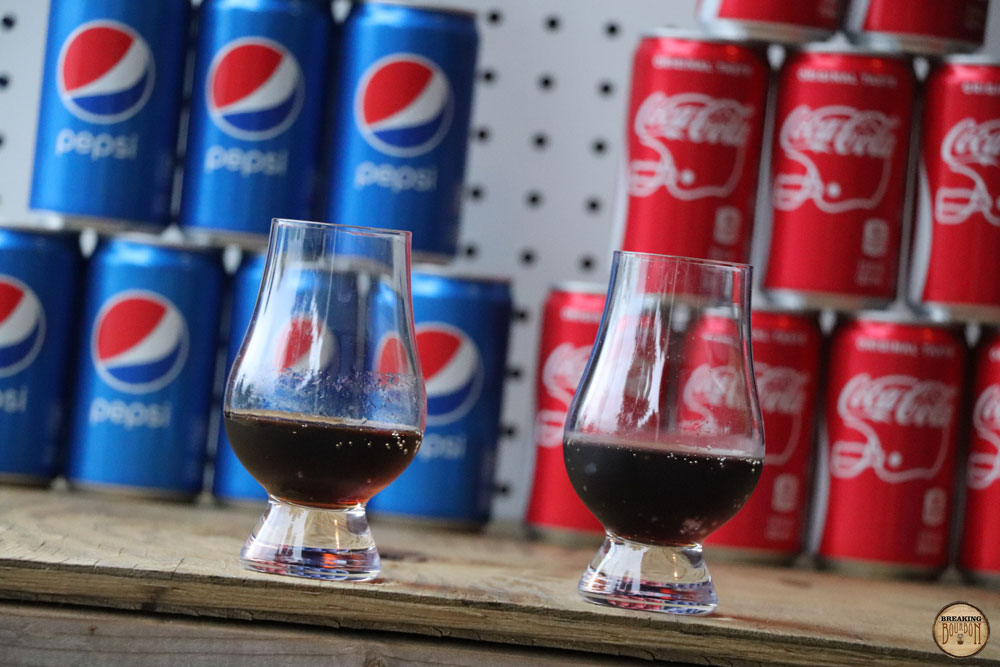In the world of marketing, marketers are always on the lookout for that one campaign that will inspire a chain reaction of public excitement and result in sustained culture change in favour of clients’ brands. For Pepsi, that moment came with the launch of The Pepsi Challenge. A 1975 marketing campaign by Pepsi that revolutionized the way companies marketed their products.
The Pepsi Challenge was a blind taste test where people were asked to taste two colas without knowing which was which and then pick their favourite. This campaign had a significant impact on Pepsi’s sales and transformed the brand into a global icon.
The Pepsi Challenge was born out of the company’s desire to take on its biggest competitor, Coca-Cola, which had a dominant market share at the time.
Pepsi’s marketing team believed that if people could taste the difference between Pepsi and Coke, they would choose Pepsi as their preferred beverage.
The company conducted blind taste tests in various locations across the United States, where they offered people two cups of cola without revealing which was which. The taste test results showed that a majority of people preferred Pepsi over Coca-Cola.
The Pepsi Challenge helped to differentiate Pepsi from Coca-Cola, increase its market share, and cement its position as one of the world’s most recognizable consumer brands.
At the time of the campaign, the soft drink market was largely dominated by Coca-Cola, but the soft drink company was desperate to differentiate itself from its main competitor.
David Mackay, who was then a marketing executive came up with the idea of the Pepsi Challenge. Mackay had initially carried out the marketing experiment, albeit on a smaller scale. And the result convinced him that The Pepsi Challenge was worth going for.
The Pepsi Challenge involved setting up a booth in shopping centres and other public places, where people were invited to taste two unlabelled cups of cola and then choose which one they preferred. One of the cups contained Pepsi, and the other contained Coke.
The company invested millions of dollars in the campaign, which included television commercials, billboards, and in-store displays. The Pepsi Challenge became a cultural phenomenon, and people lined up to take the test, which was often held in shopping malls and other public places.
Within a year of its launch, Pepsi’s market share grew by 2.8%. The Pepsi Challenge continued throughout the 1980s, and at its peak, the company was conducting 400,000 taste tests per year.
The company’s sales increased significantly, and it gained market share against Coca-Cola. In the years following the campaign, Pepsi’s market share grew from around 17% to 25%, while Coca-Cola’s share declined.
The success of the Pepsi Challenge was not just limited to the United States, as the campaign was launched globally and helped establish Pepsi as a global brand.
According to Leslie Mupeti, a brand strategist, the Pepsi Challenge campaign was not just about blind taste tests, it was also about creating an emotional connection with consumers. Pepsi used the campaign to position itself as a brand that was all about youthfulness, energy, and fun.
The company’s marketing team understood that young people wanted to feel like they were part of something cool and exciting, and they used the Pepsi Challenge to make the brand synonymous with this type of lifestyle.
Mupeti stressed that The Pepsi Challenge campaign’s success was about the power of creativity and innovation over big budgets. “The Pepsi Challenge proved that creativity and innovation could be just as powerful as big marketing budgets in building brand image and commercial presence,” he said.
Mupeti also noted that the campaign demonstrated the power of marketing research, while also serving as an early example of experiential marketing which focuses on creating memorable experiences.
The Pepsi Challenge was a game-changer for the soft drink industry and transformed Pepsi into an iconic global brand. To date, The Pepsi Challenge continues to be remembered as one of the most successful marketing campaigns of all time and serves as a reminder that companies can succeed by taking risks and challenging the status quo.





Comment
No comments found.